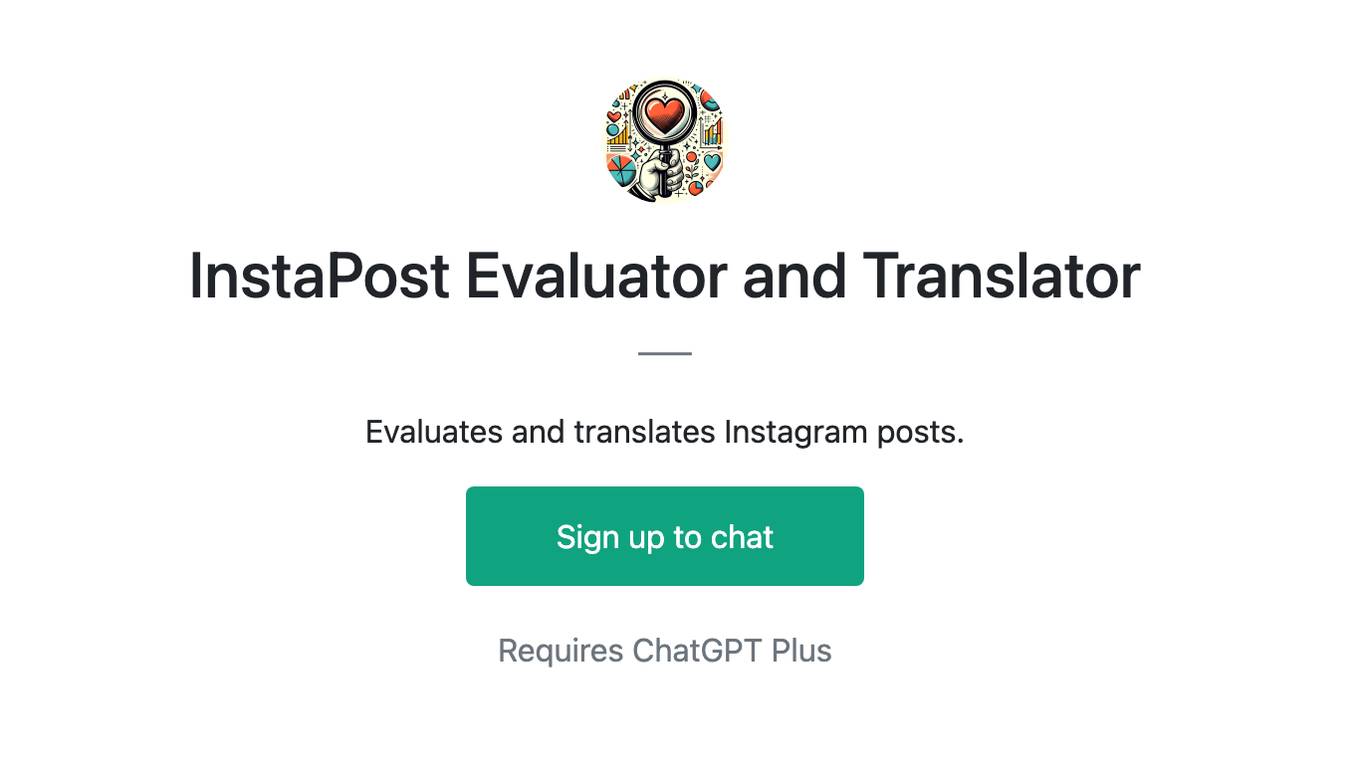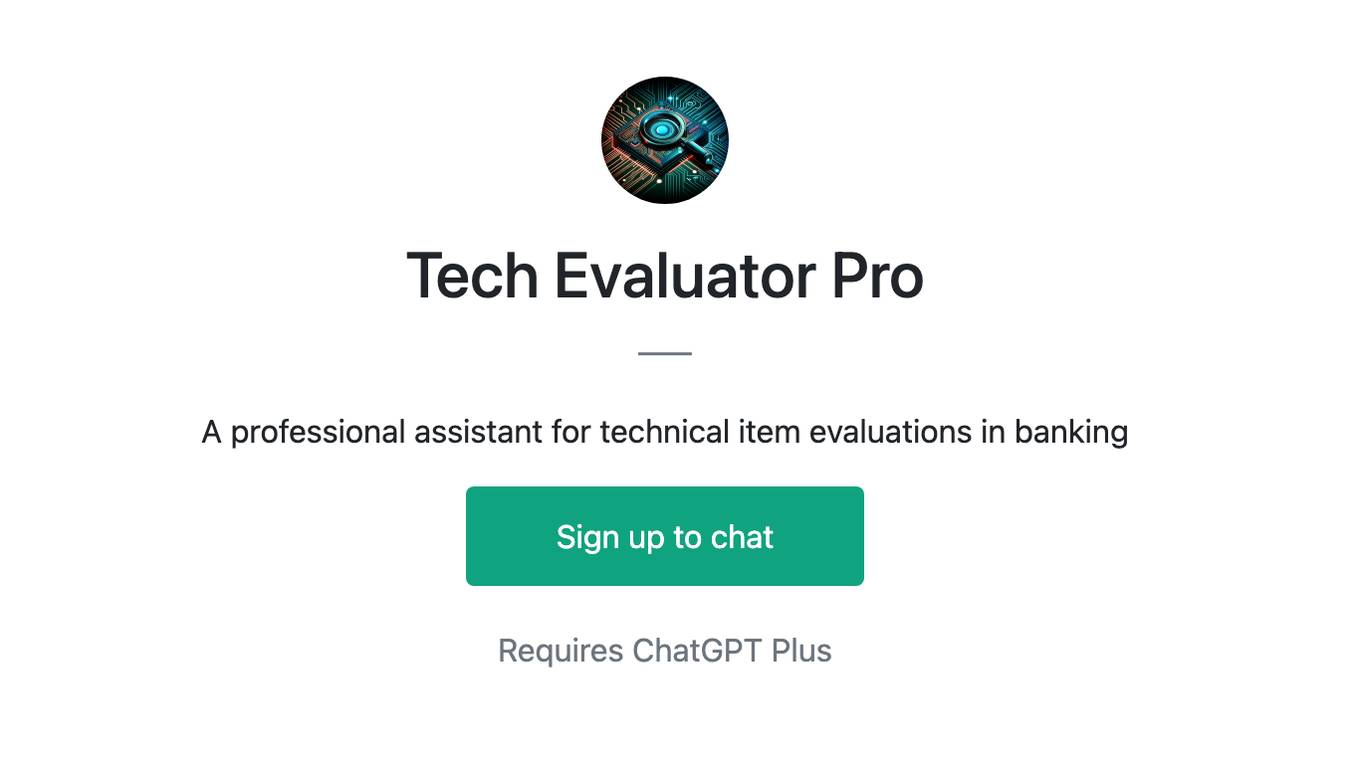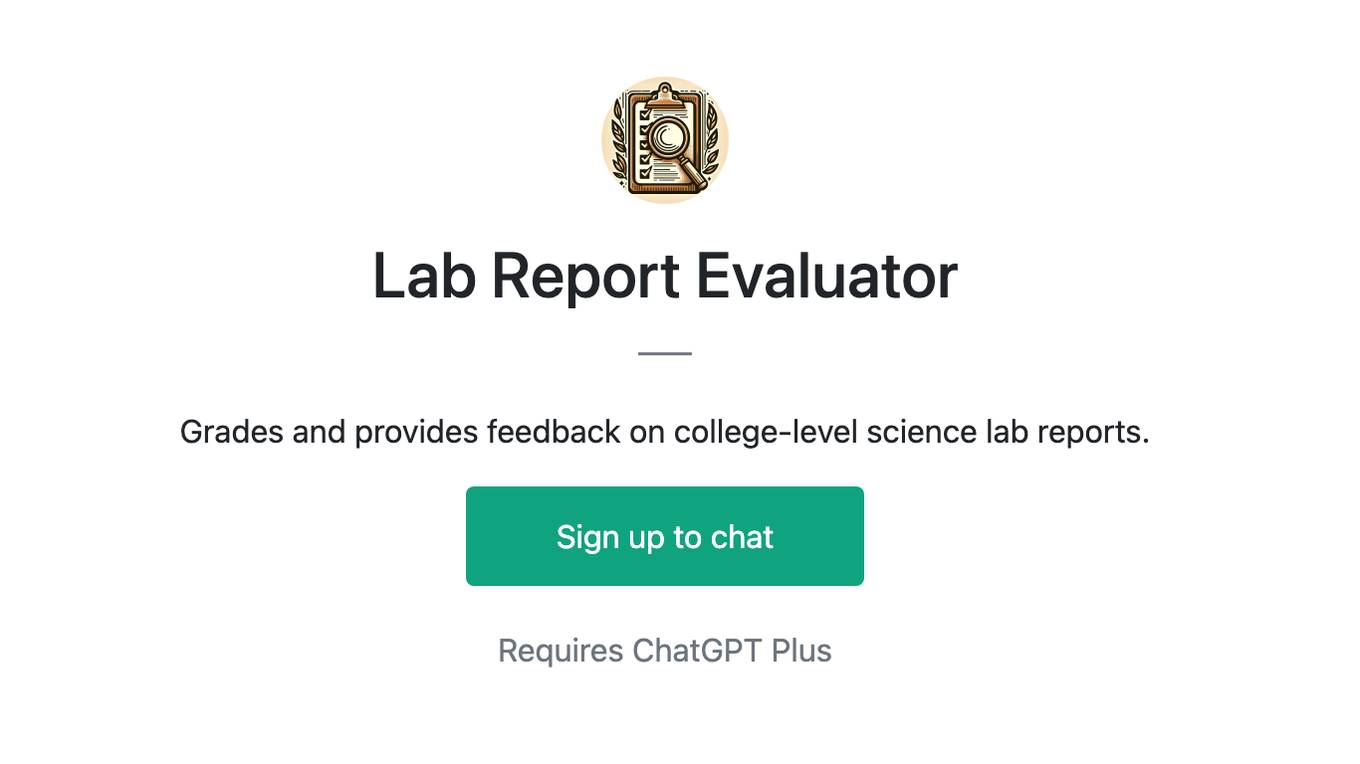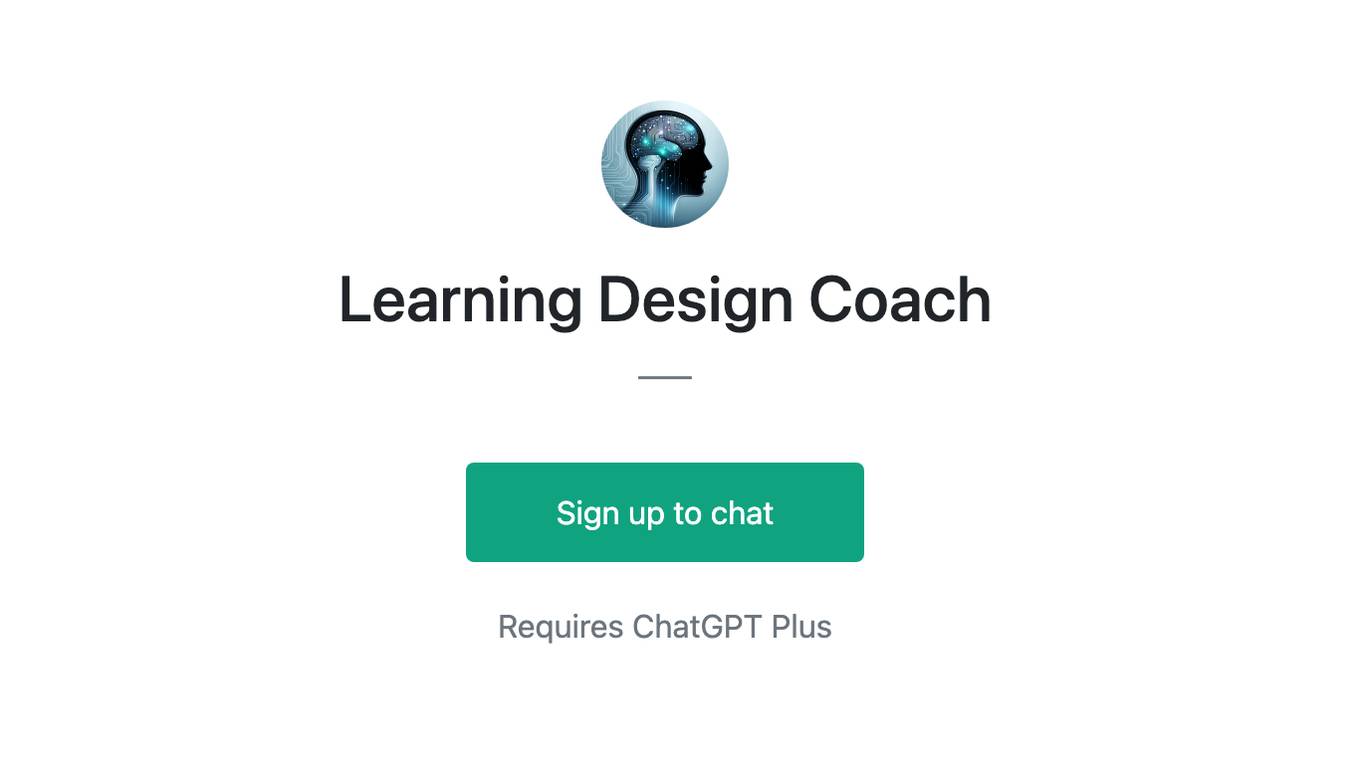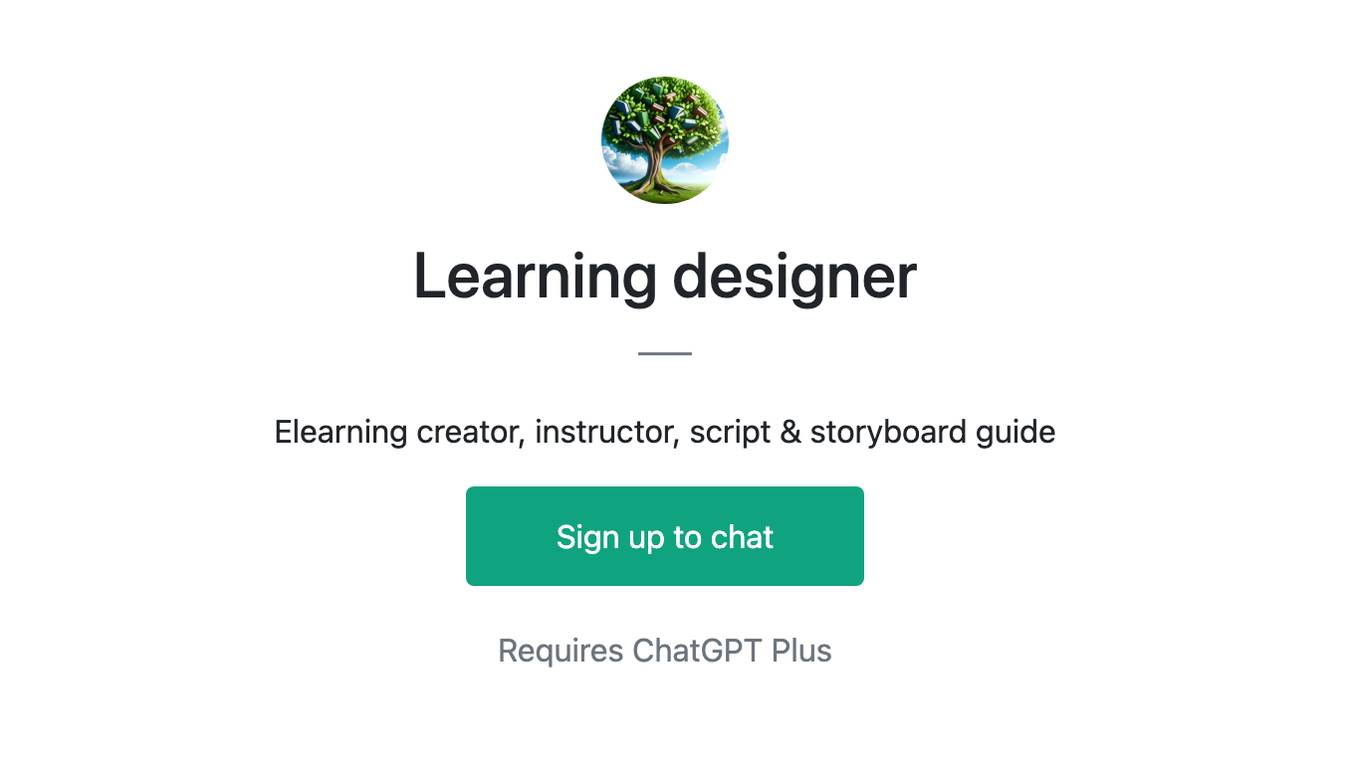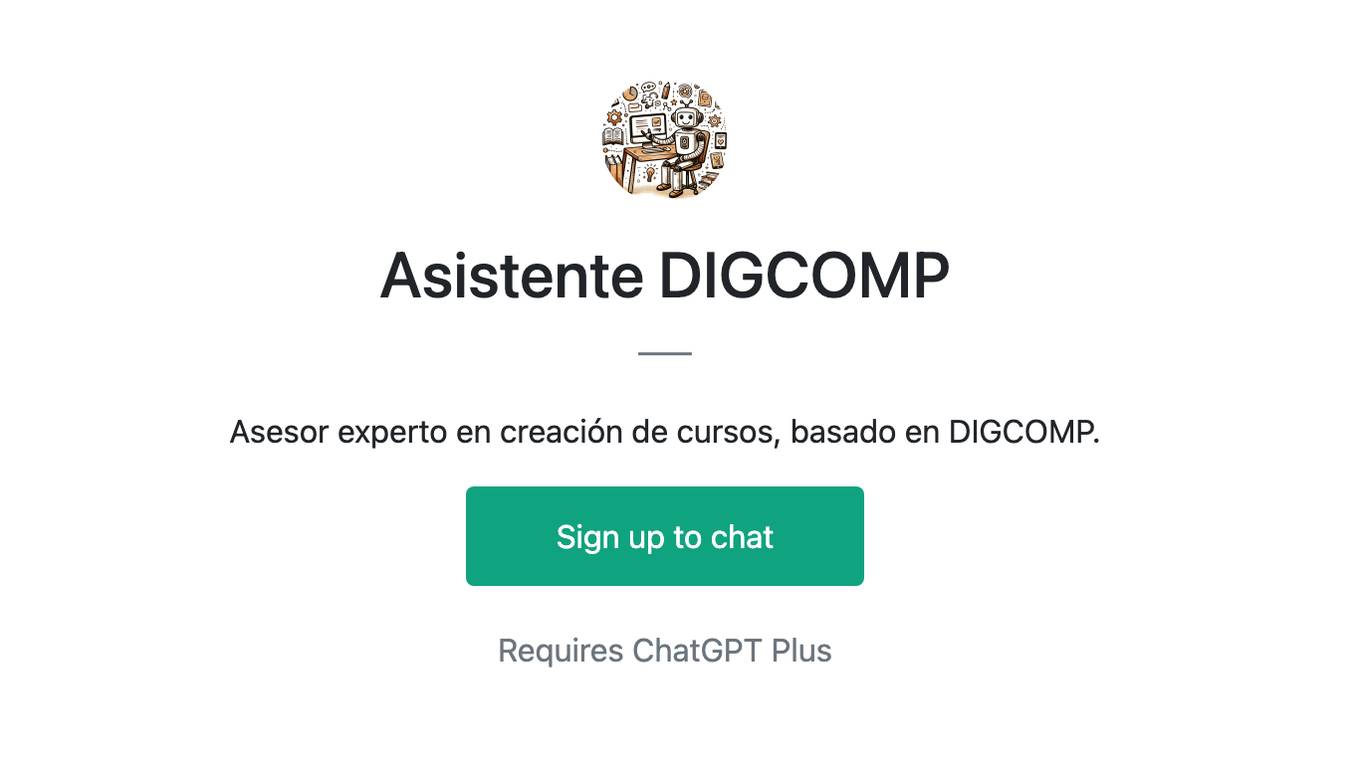Best AI tools for< Learning Evaluator >
Infographic
20 - AI tool Sites
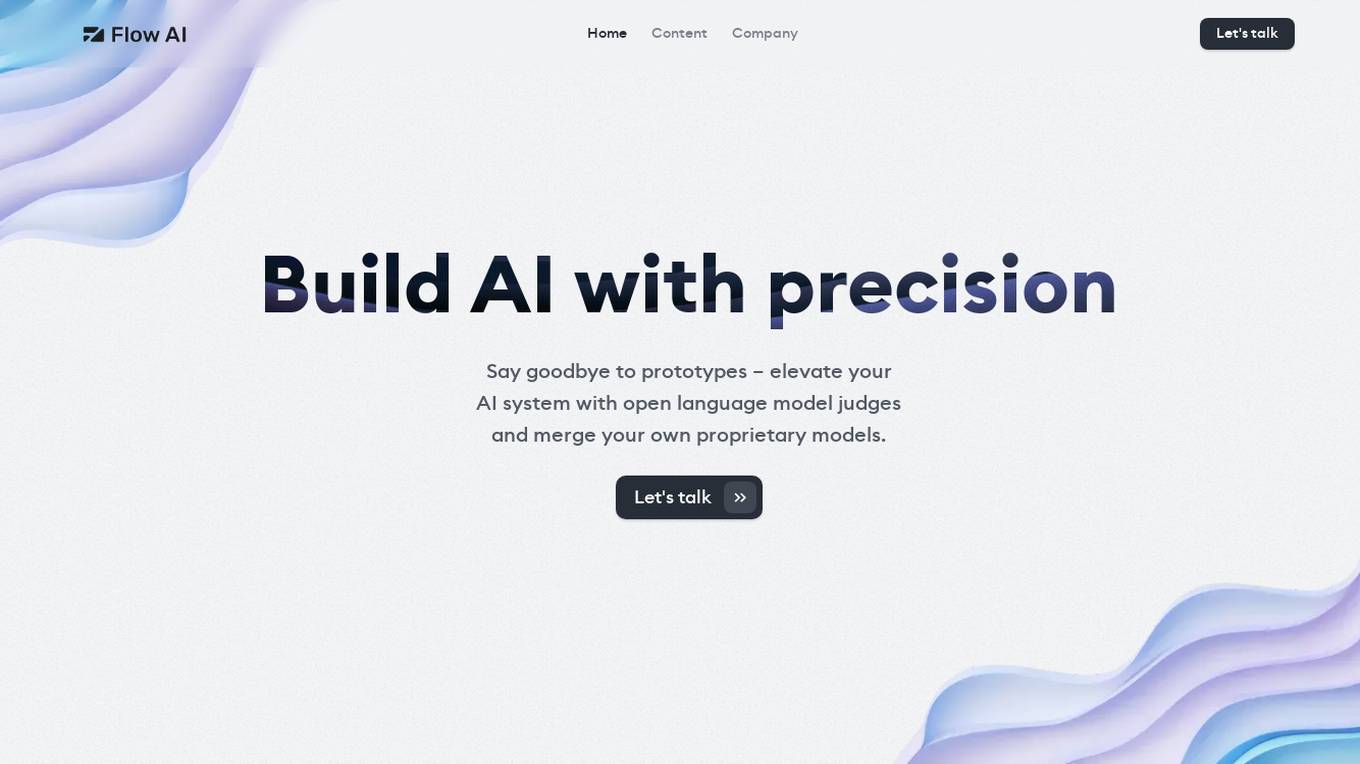
Flow AI
Flow AI is an advanced AI tool designed for evaluating and improving Large Language Model (LLM) applications. It offers a unique system for creating custom evaluators, deploying them with an API, and developing specialized LMs tailored to specific use cases. The tool aims to revolutionize AI evaluation and model development by providing transparent, cost-effective, and controllable solutions for AI teams across various domains.
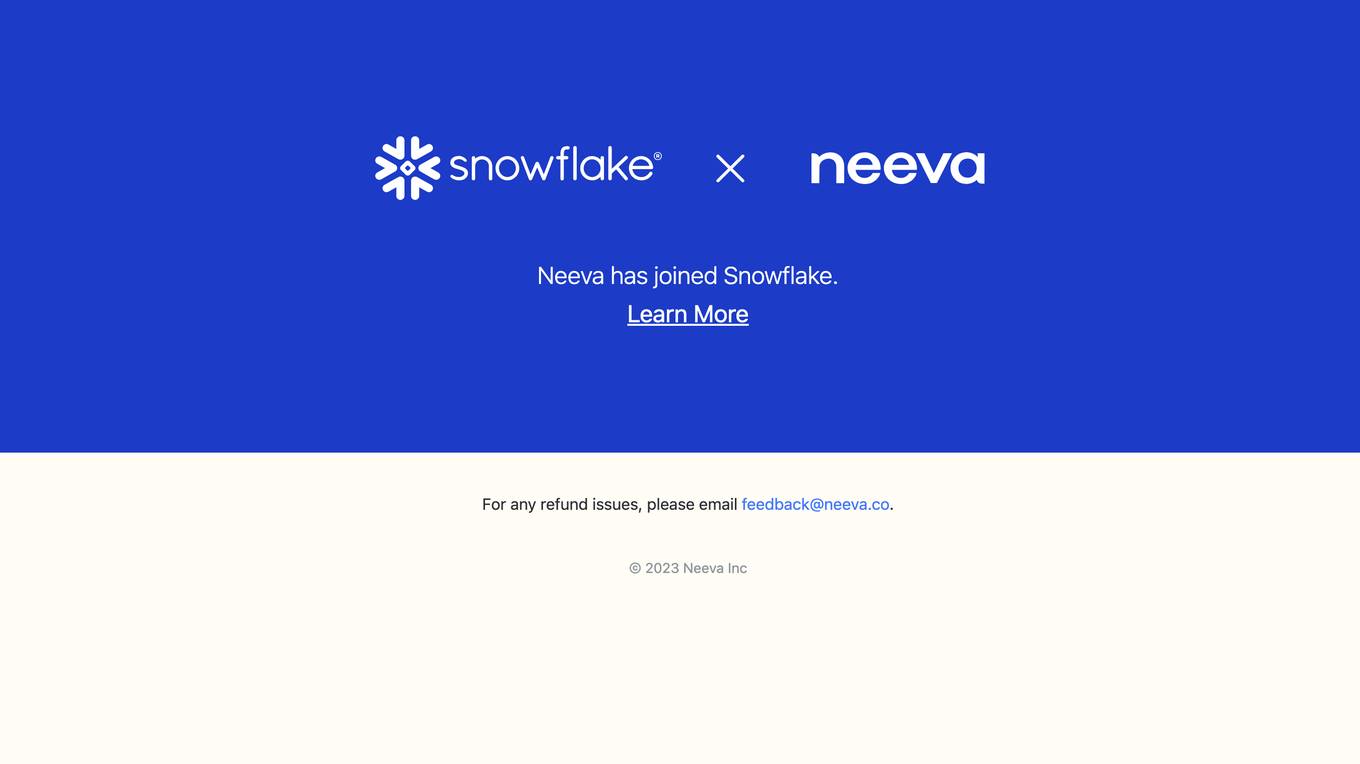
Neeva
Neeva is a search engine powered by artificial intelligence. It offers a variety of features, including the ability to search the web, images, videos, and news. Neeva also offers a number of privacy features, such as the ability to search without being tracked and the ability to delete your search history. Neeva is available as a desktop application and as a mobile app.

Prefind
Prefind is an AI-powered search engine that utilizes the capabilities of advanced language models like Claude-3 and GPT-4. It aims to provide users with comprehensive and relevant search results, leveraging the power of AI to enhance the search experience.
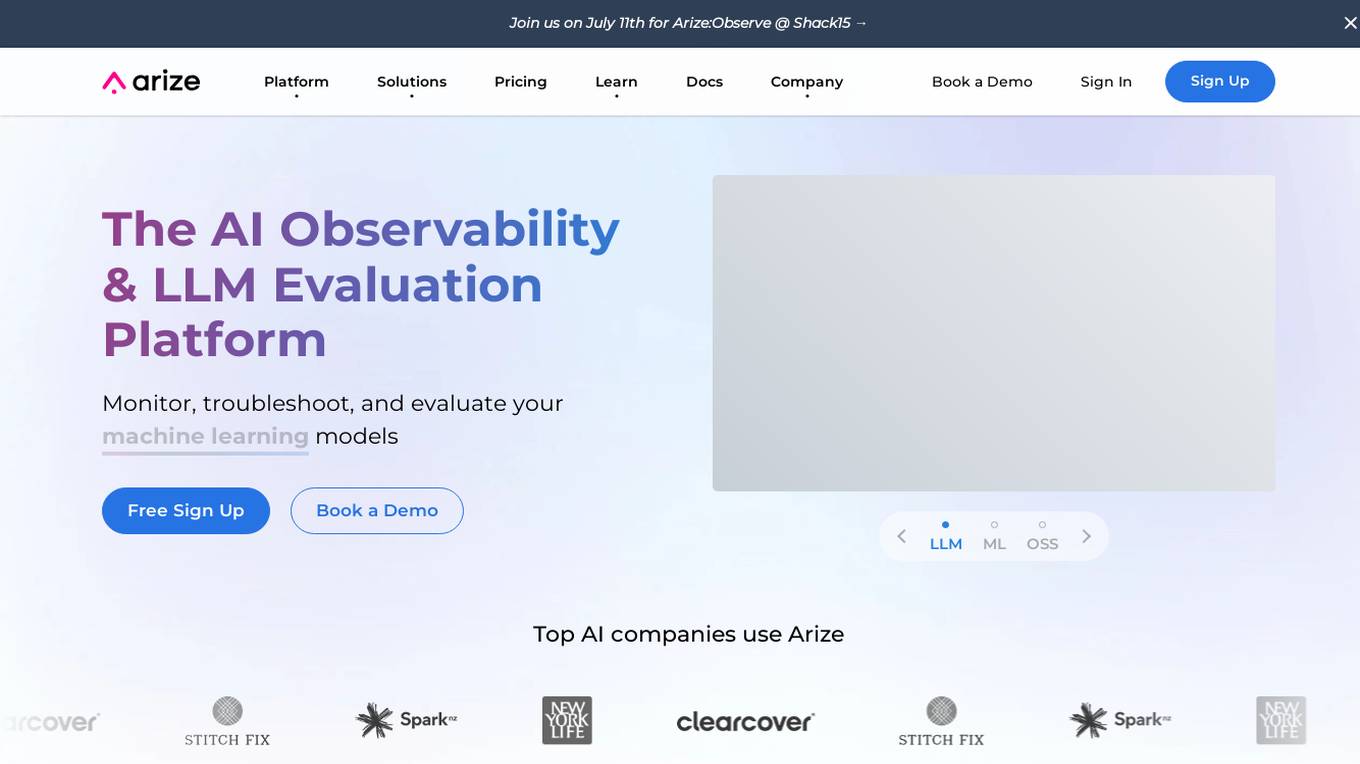
Arize AI
Arize AI is an AI Observability & LLM Evaluation Platform that helps you monitor, troubleshoot, and evaluate your machine learning models. With Arize, you can catch model issues, troubleshoot root causes, and continuously improve performance. Arize is used by top AI companies to surface, resolve, and improve their models.

Dr. Randal S. Olson
Dr. Randal S. Olson is an AI Researcher & Builder known for turning ambitious AI ideas into business wins by bridging the gap between technical promise and real-world impact. His work encompasses data science, AI engineering, and executive strategy. He has worked on various projects in AI, data science, and technology leadership, including the development of the Truesight Expert-grounded AI evaluation platform and the AutoML Tool TPOT. Dr. Olson's focus is on building privacy-first AI solutions that prioritize ethical AI development and user-centric design.

Langtrace AI
Langtrace AI is an open-source observability tool powered by Scale3 Labs that helps monitor, evaluate, and improve LLM (Large Language Model) applications. It collects and analyzes traces and metrics to provide insights into the ML pipeline, ensuring security through SOC 2 Type II certification. Langtrace supports popular LLMs, frameworks, and vector databases, offering end-to-end observability and the ability to build and deploy AI applications with confidence.
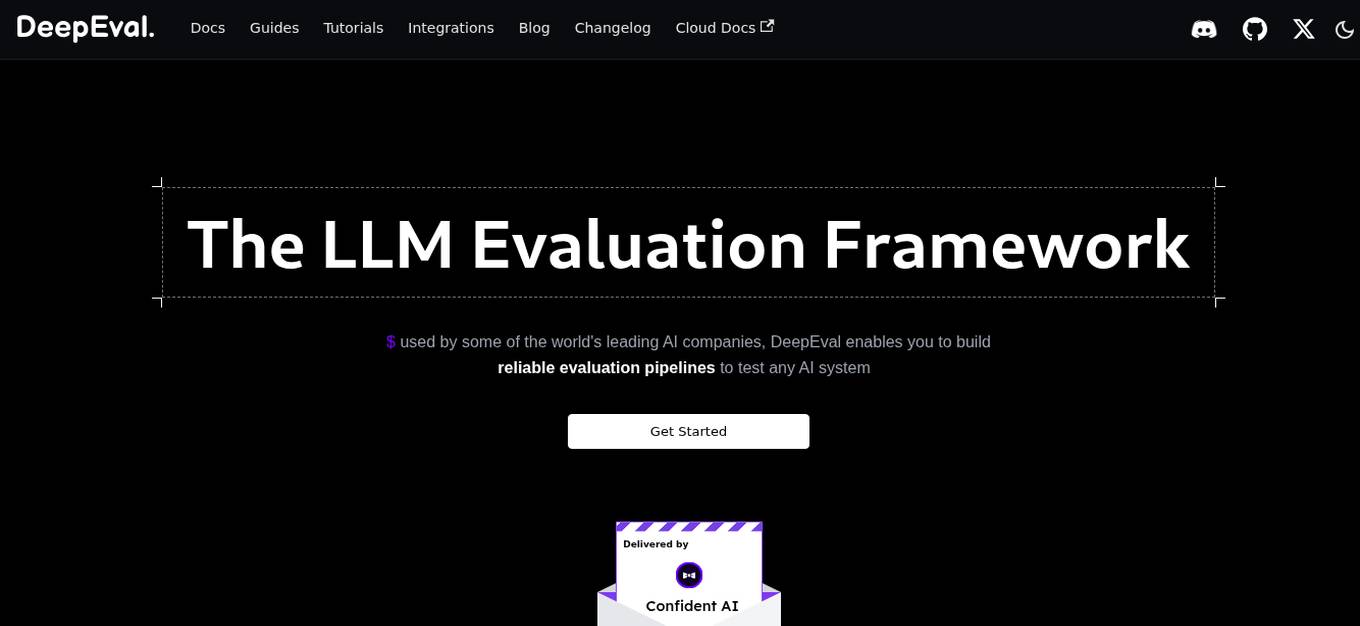
DeepEval
DeepEval by Confident AI is a comprehensive LLM Evaluation Framework used by leading AI companies. It enables users to build reliable evaluation pipelines to test any AI system. With 50+ research-backed metrics, native multi-modal support, and auto-optimization of prompts, DeepEval offers a sophisticated evaluation ecosystem for AI applications. The framework covers unit-testing for LLMs, single and multi-turn evaluations, generation & simulation of test data, and state-of-the-art evaluation techniques like G-Eval and DAG. DeepEval is integrated with Pytest and supports various system architectures, making it a versatile tool for AI testing.
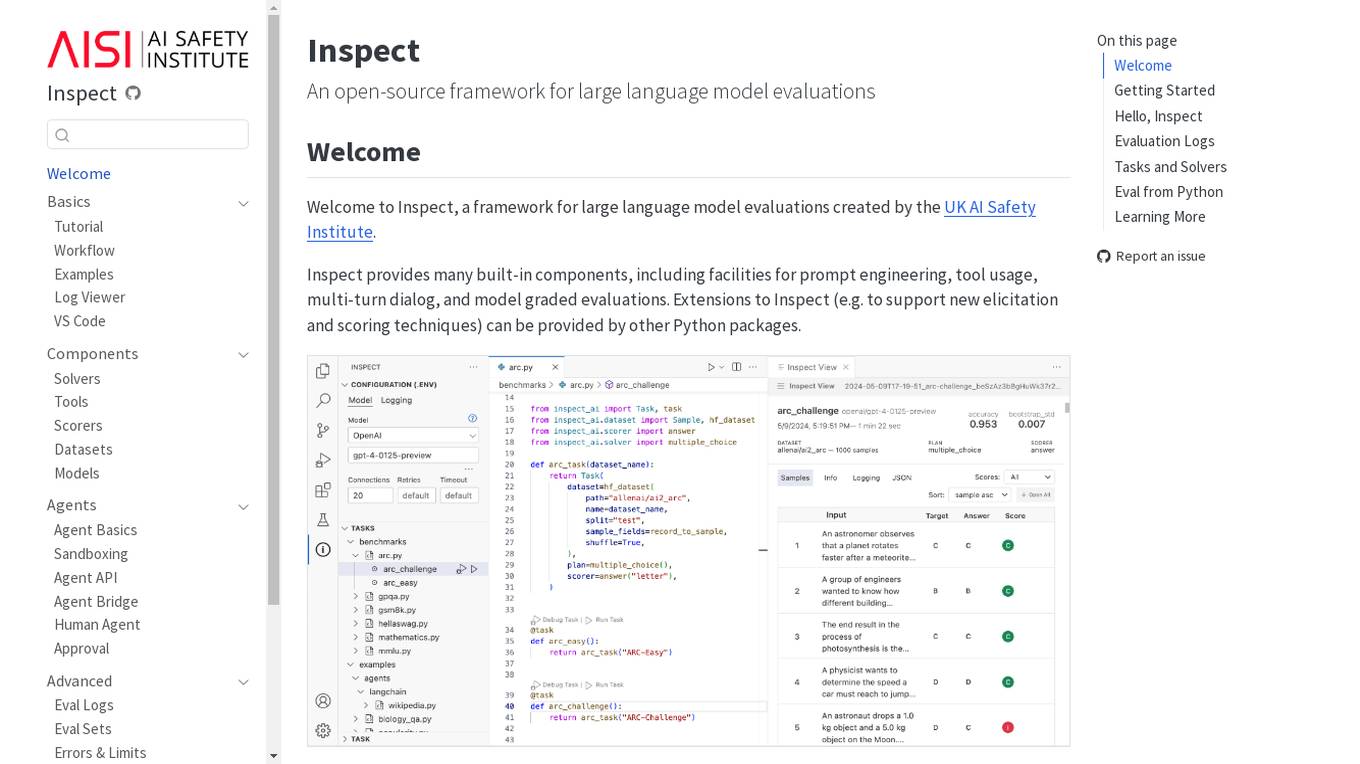
Inspect
Inspect is an open-source framework for large language model evaluations created by the UK AI Safety Institute. It provides built-in components for prompt engineering, tool usage, multi-turn dialog, and model graded evaluations. Users can explore various solvers, tools, scorers, datasets, and models to create advanced evaluations. Inspect supports extensions for new elicitation and scoring techniques through Python packages.
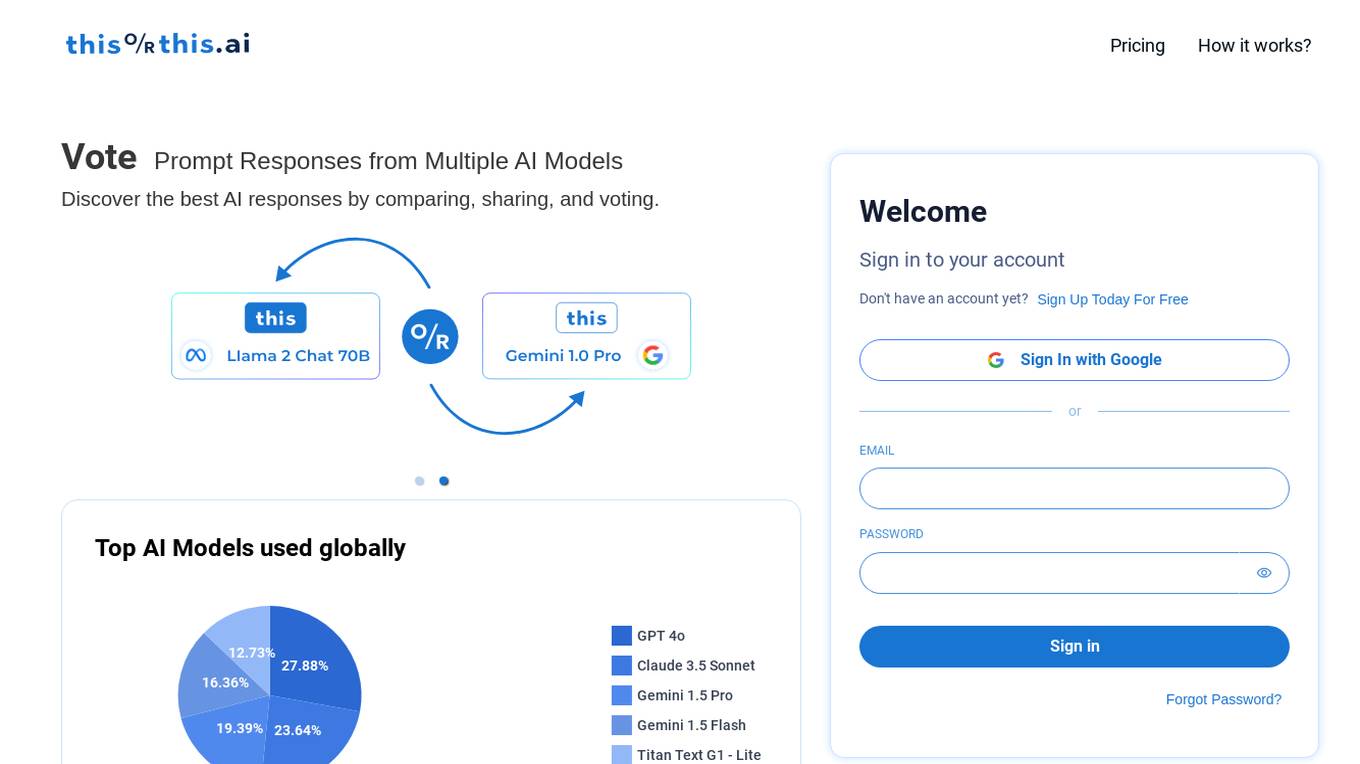
thisorthis.ai
thisorthis.ai is an AI tool that allows users to compare generative AI models and AI model responses. It helps users analyze and evaluate different AI models to make informed decisions. The tool requires JavaScript to be enabled for optimal functionality.

BenchLLM
BenchLLM is an AI tool designed for AI engineers to evaluate LLM-powered apps by running and evaluating models with a powerful CLI. It allows users to build test suites, choose evaluation strategies, and generate quality reports. The tool supports OpenAI, Langchain, and other APIs out of the box, offering automation, visualization of reports, and monitoring of model performance.

HappyML
HappyML is an AI tool designed to assist users in machine learning tasks. It provides a user-friendly interface for running machine learning algorithms without the need for complex coding. With HappyML, users can easily build, train, and deploy machine learning models for various applications. The tool offers a range of features such as data preprocessing, model evaluation, hyperparameter tuning, and model deployment. HappyML simplifies the machine learning process, making it accessible to users with varying levels of expertise.
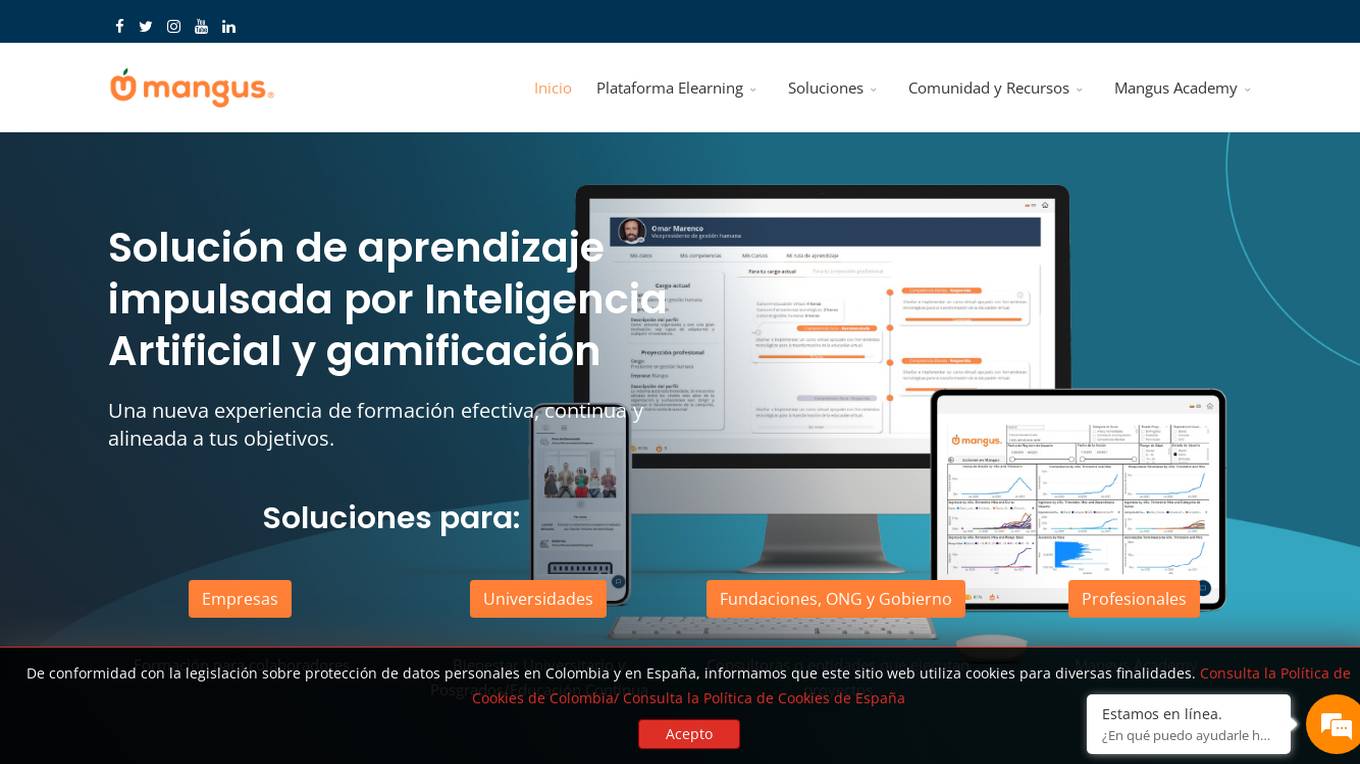
Mangus
Mangus is an AI-powered learning platform that provides personalized learning paths for employees and students. It offers a wide range of courses and programs in various disciplines, including business, education, technology, and more. Mangus uses gamification and artificial intelligence to create an engaging and effective learning experience.

edu720
edu720 is a science-backed learning platform that uses AI and nanolearning to redefine how workforces learn and achieve their goals. It provides pre-built learning modules on various topics, including cybersecurity, privacy, and AI ethics. edu720's 360-degree approach ensures that all employees, regardless of their status or location, fully understand and absorb the knowledge conveyed.

Evidently AI
Evidently AI is an open-source machine learning (ML) monitoring and observability platform that helps data scientists and ML engineers evaluate, test, and monitor ML models from validation to production. It provides a centralized hub for ML in production, including data quality monitoring, data drift monitoring, ML model performance monitoring, and NLP and LLM monitoring. Evidently AI's features include customizable reports, structured checks for data and models, and a Python library for ML monitoring. It is designed to be easy to use, with a simple setup process and a user-friendly interface. Evidently AI is used by over 2,500 data scientists and ML engineers worldwide, and it has been featured in publications such as Forbes, VentureBeat, and TechCrunch.
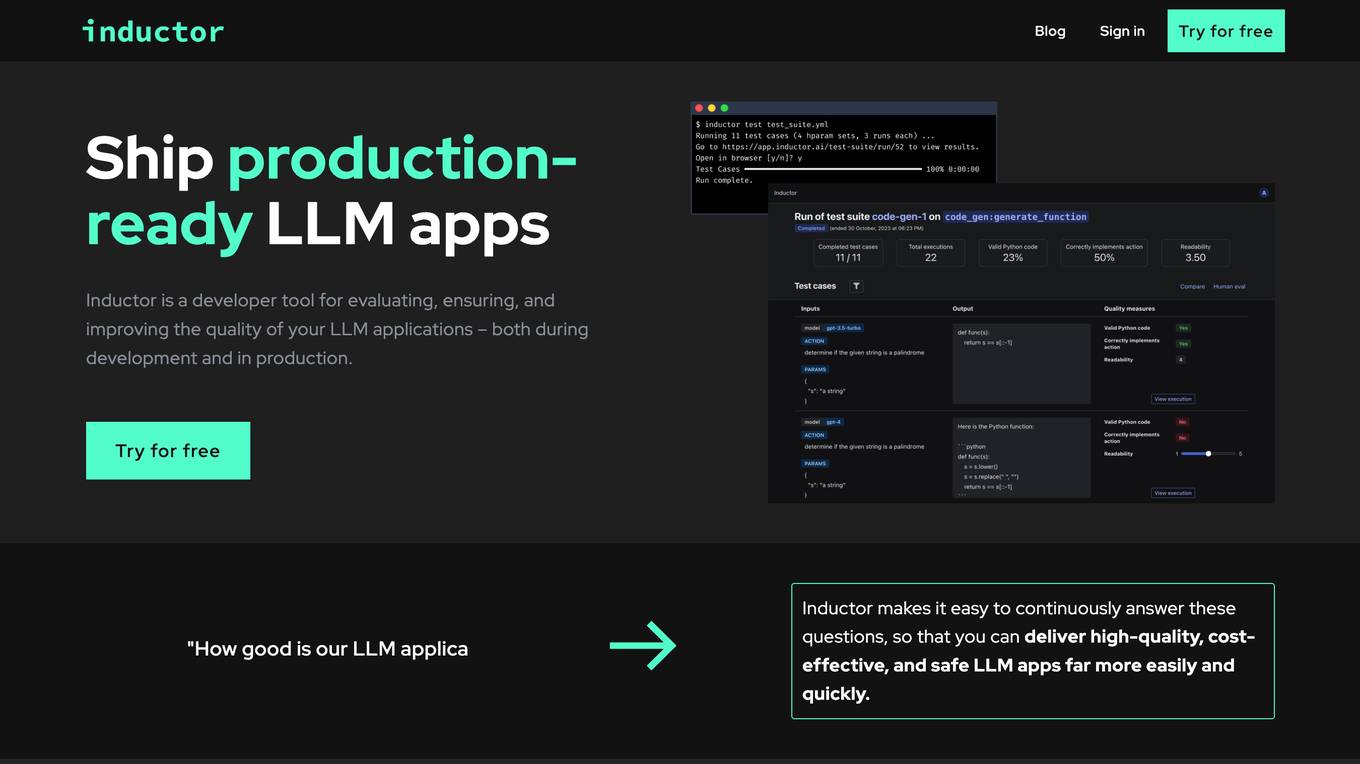
Inductor
Inductor is a developer tool for evaluating, ensuring, and improving the quality of your LLM applications – both during development and in production. It provides a fantastic workflow for continuous testing and evaluation as you develop, so that you always know your LLM app’s quality. Systematically improve quality and cost-effectiveness by actionably understanding your LLM app’s behavior and quickly testing different app variants. Rigorously assess your LLM app’s behavior before you deploy, in order to ensure quality and cost-effectiveness when you’re live. Easily monitor your live traffic: detect and resolve issues, analyze usage in order to improve, and seamlessly feed back into your development process. Inductor makes it easy for engineering and other roles to collaborate: get critical human feedback from non-engineering stakeholders (e.g., PM, UX, or subject matter experts) to ensure that your LLM app is user-ready.
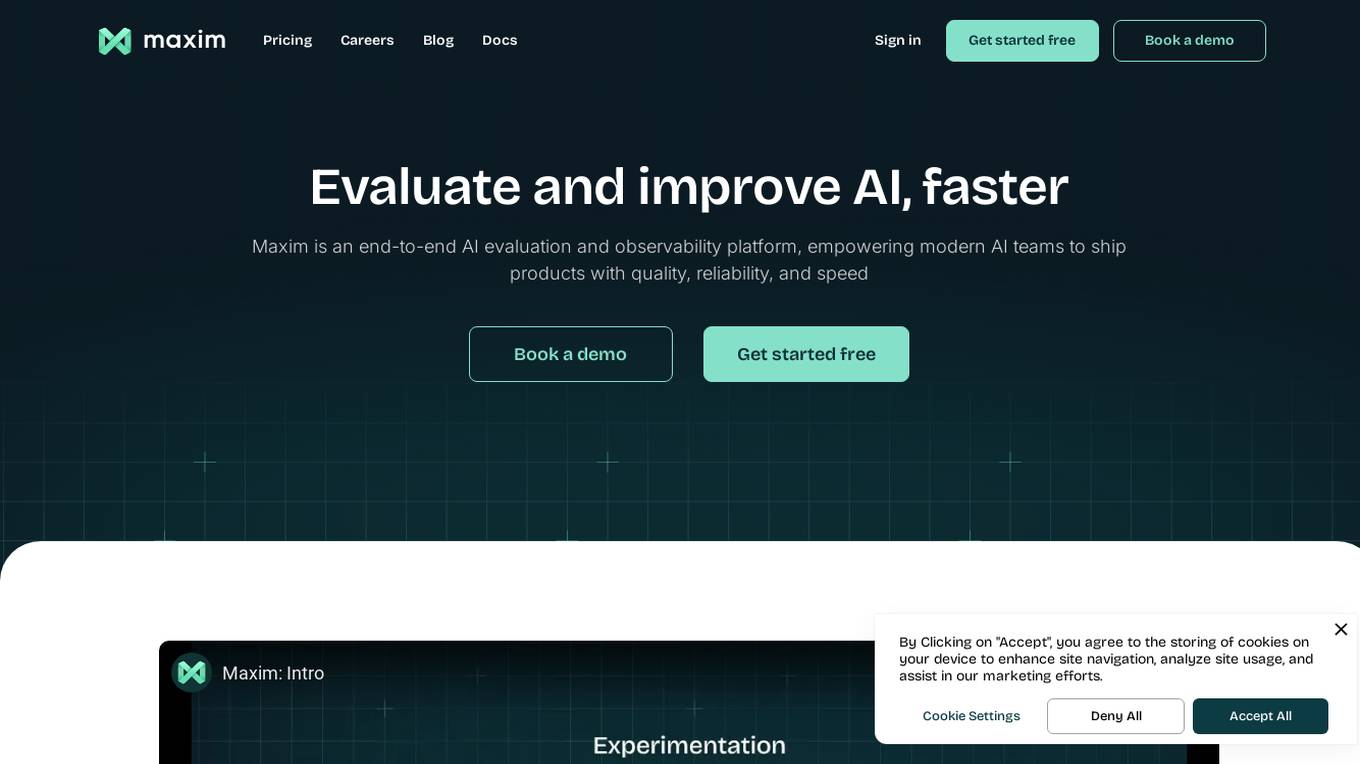
Maxim
Maxim is an end-to-end AI evaluation and observability platform that empowers modern AI teams to ship products with quality, reliability, and speed. It offers a comprehensive suite of tools for experimentation, evaluation, observability, and data management. Maxim aims to bring the best practices of traditional software development into non-deterministic AI workflows, enabling rapid iteration and deployment of AI models. The platform caters to the needs of AI developers, data scientists, and machine learning engineers by providing a unified framework for evaluation, visual flows for workflow testing, and observability features for monitoring and optimizing AI systems in real-time.
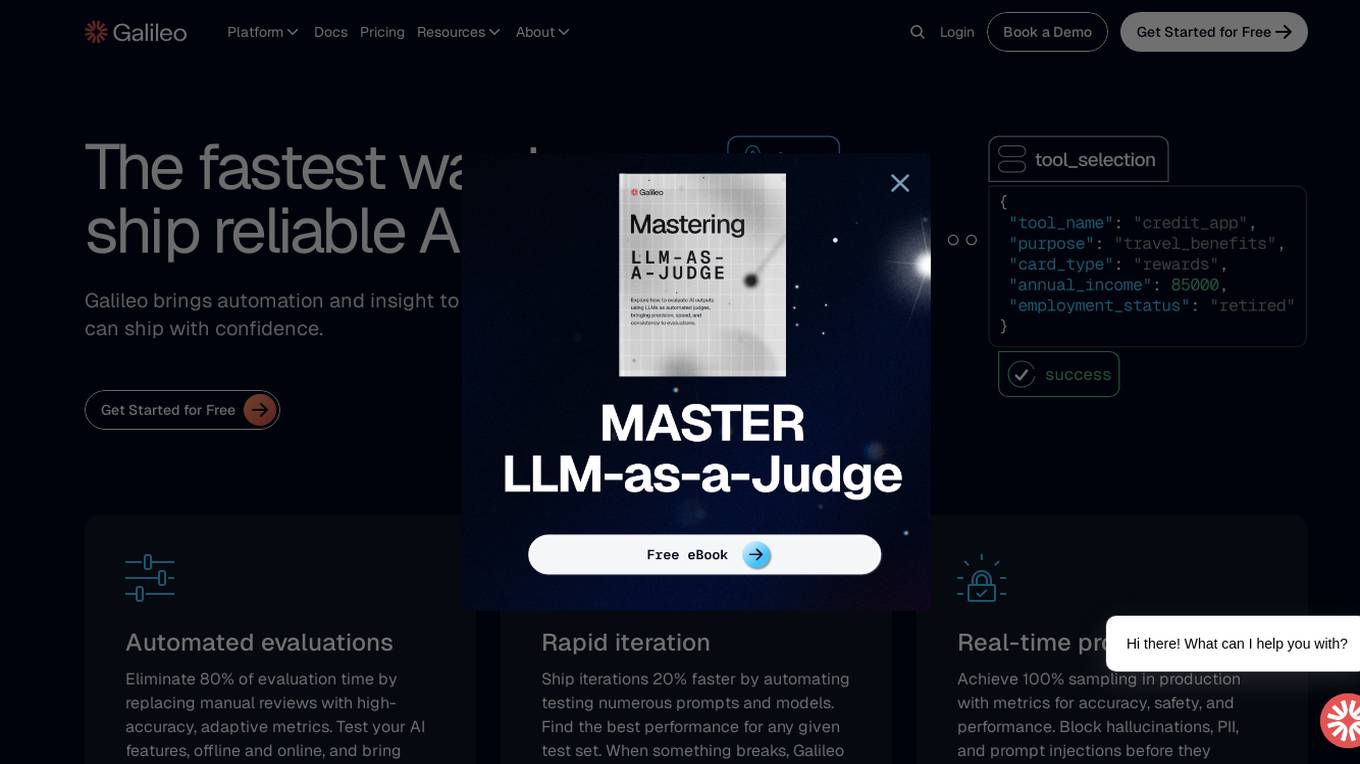
Galileo AI
Galileo AI is a platform that offers automated evaluations for AI applications, bringing automation and insight to AI evaluations to ensure reliable and confident shipping. It helps in eliminating 80% of evaluation time by replacing manual reviews with high-accuracy metrics, enabling rapid iteration, achieving real-time protection, and providing end-to-end visibility into agent completions. Galileo also allows developers to take control of AI complexity, de-risk AI in production, and deploy AI applications flexibly across different environments. The platform is trusted by enterprises and loved by developers for its accuracy, low-latency, and ability to run on L4 GPUs.
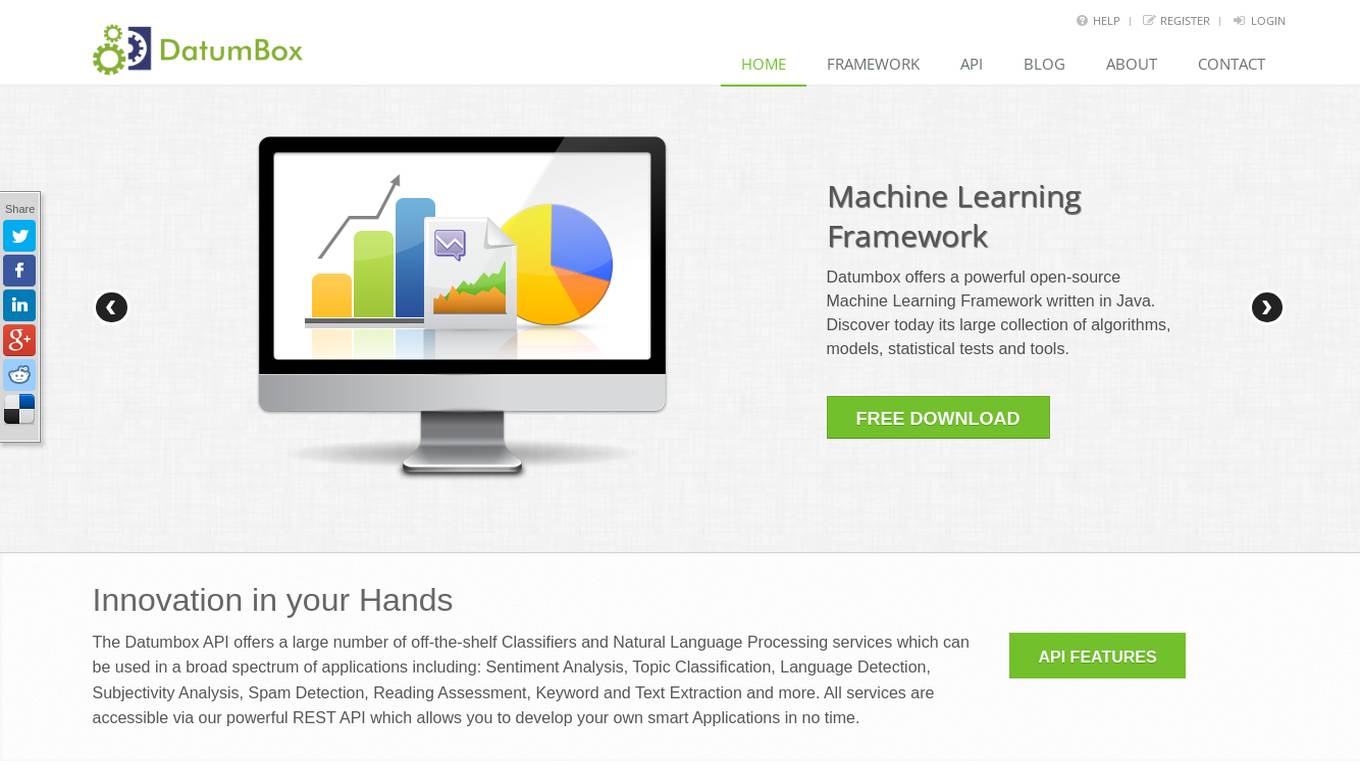
Datumbox
Datumbox is a machine learning platform that offers a powerful open-source Machine Learning Framework written in Java. It provides a large collection of algorithms, models, statistical tests, and tools to power up intelligent applications. The platform enables developers to build smart software and services quickly using its REST Machine Learning API. Datumbox API offers off-the-shelf Classifiers and Natural Language Processing services for applications like Sentiment Analysis, Topic Classification, Language Detection, and more. It simplifies the process of designing and training Machine Learning models, making it easy for developers to create innovative applications.
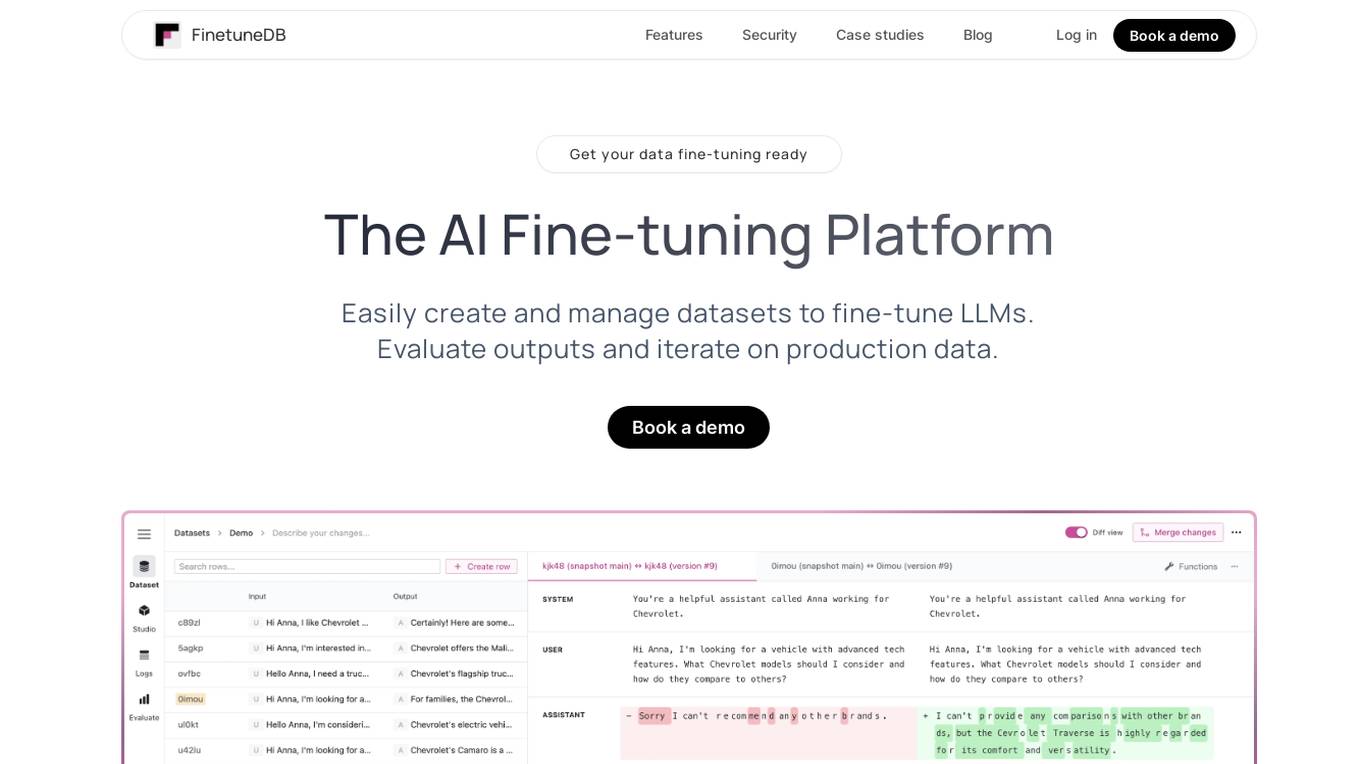
FinetuneDB
FinetuneDB is an AI fine-tuning platform that allows users to easily create and manage datasets to fine-tune LLMs, evaluate outputs, and iterate on production data. It integrates with open-source and proprietary foundation models, and provides a collaborative editor for building datasets. FinetuneDB also offers a variety of features for evaluating model performance, including human and AI feedback, automated evaluations, and model metrics tracking.
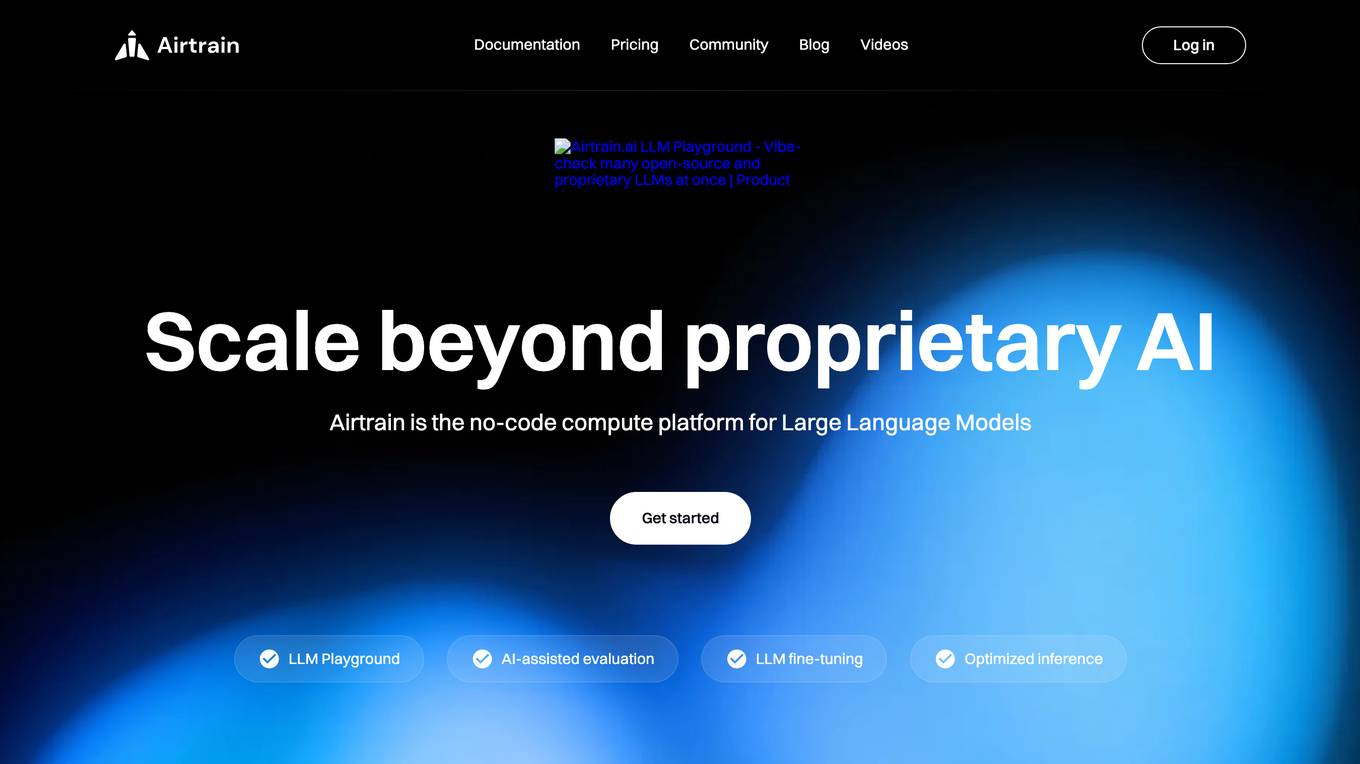
Airtrain
Airtrain is a no-code compute platform for Large Language Models (LLMs). It provides a user-friendly interface for fine-tuning, evaluating, and deploying custom AI models. Airtrain also offers a marketplace of pre-trained models that can be used for a variety of tasks, such as text generation, translation, and question answering.
0 - Open Source Tools
20 - OpenAI Gpts
MEICCA expert
Experto en educación y evaluación de aprendizajes. Parte de equipo de investigación del proyecto MEICCA
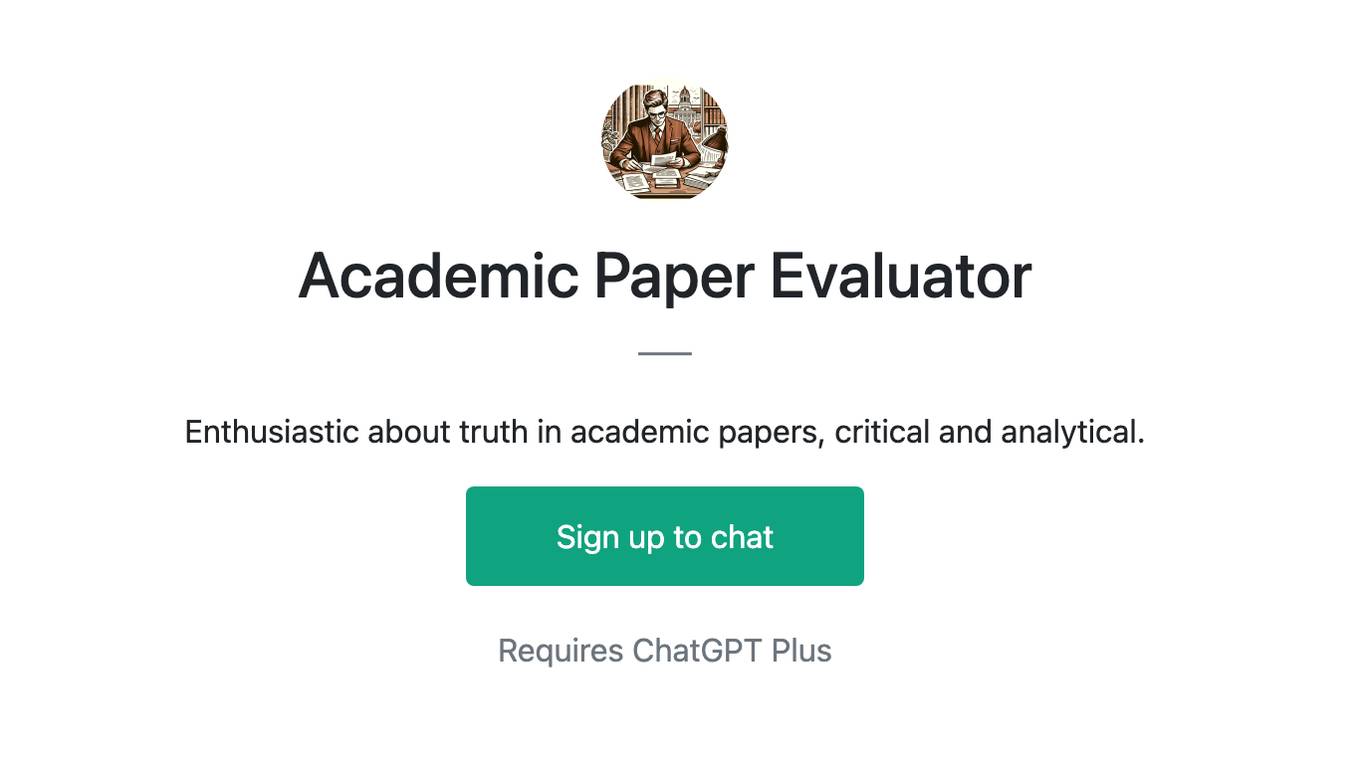
Academic Paper Evaluator
Enthusiastic about truth in academic papers, critical and analytical.
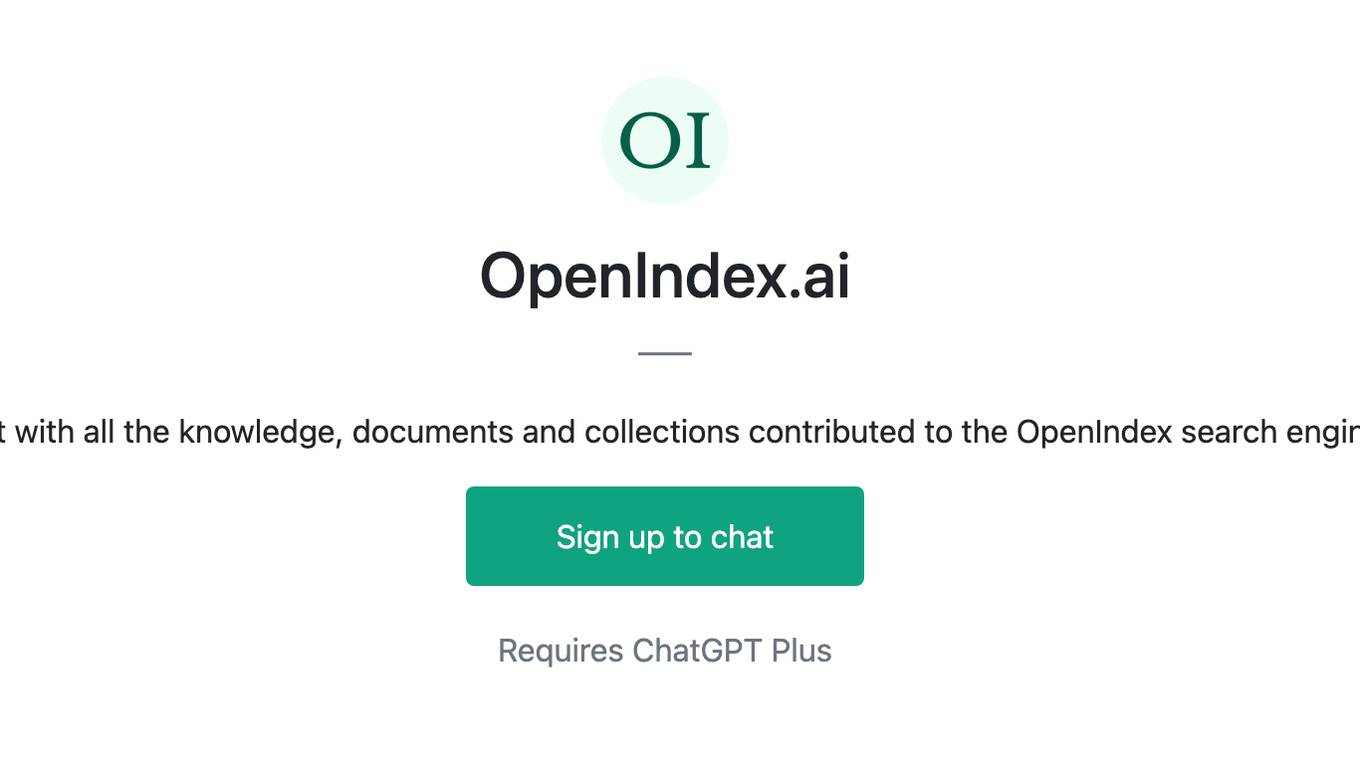
OpenIndex.ai
Chat with all the knowledge, documents and collections contributed to the OpenIndex search engine.
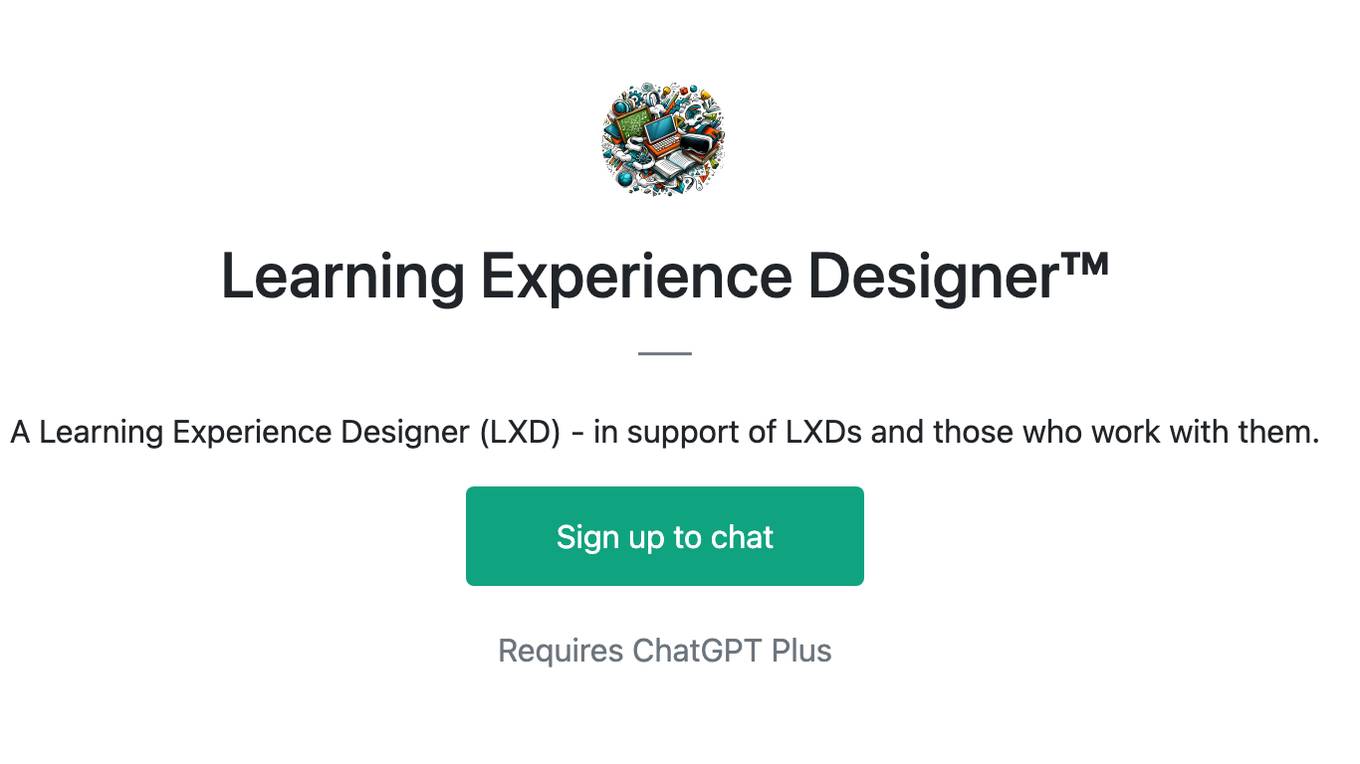
Learning Experience Designer™
A Learning Experience Designer (LXD) - in support of LXDs and those who work with them.
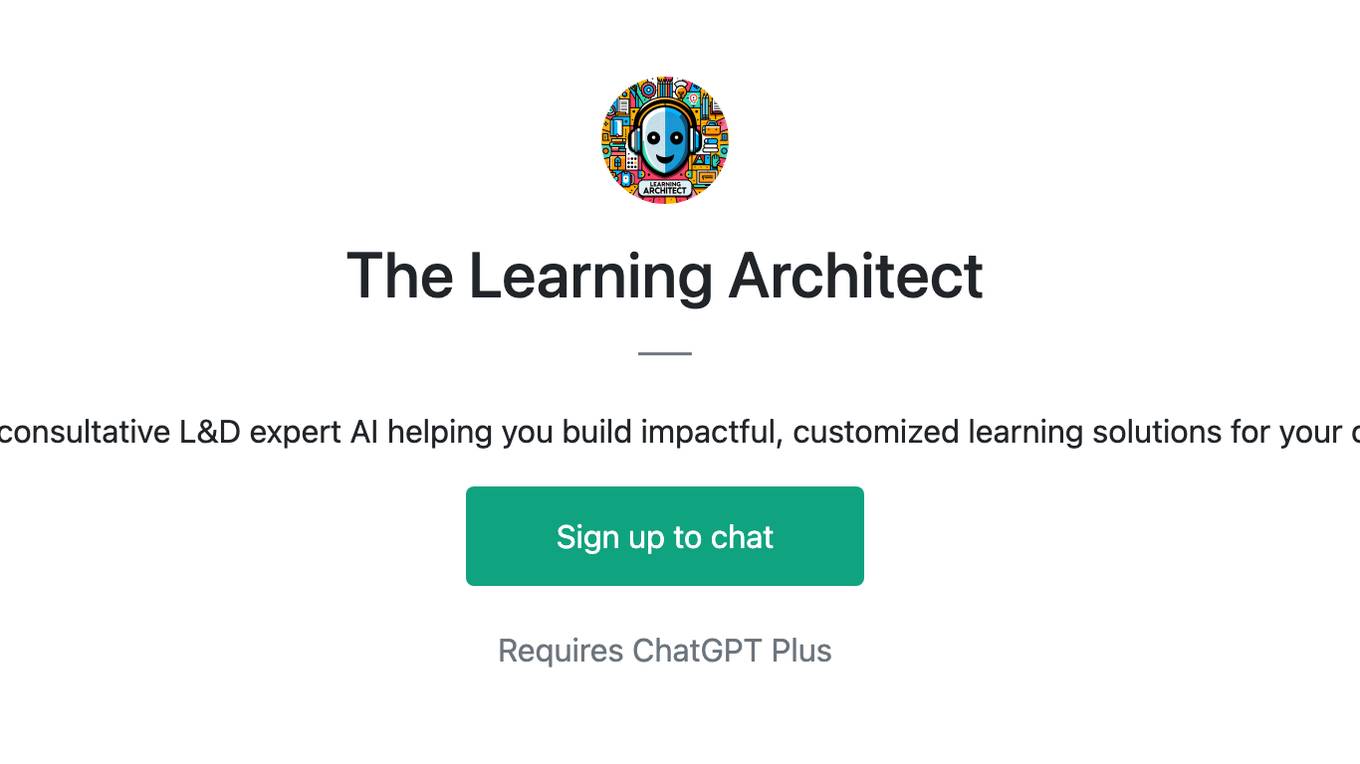
The Learning Architect
An all-in-one, consultative L&D expert AI helping you build impactful, customized learning solutions for your organization.
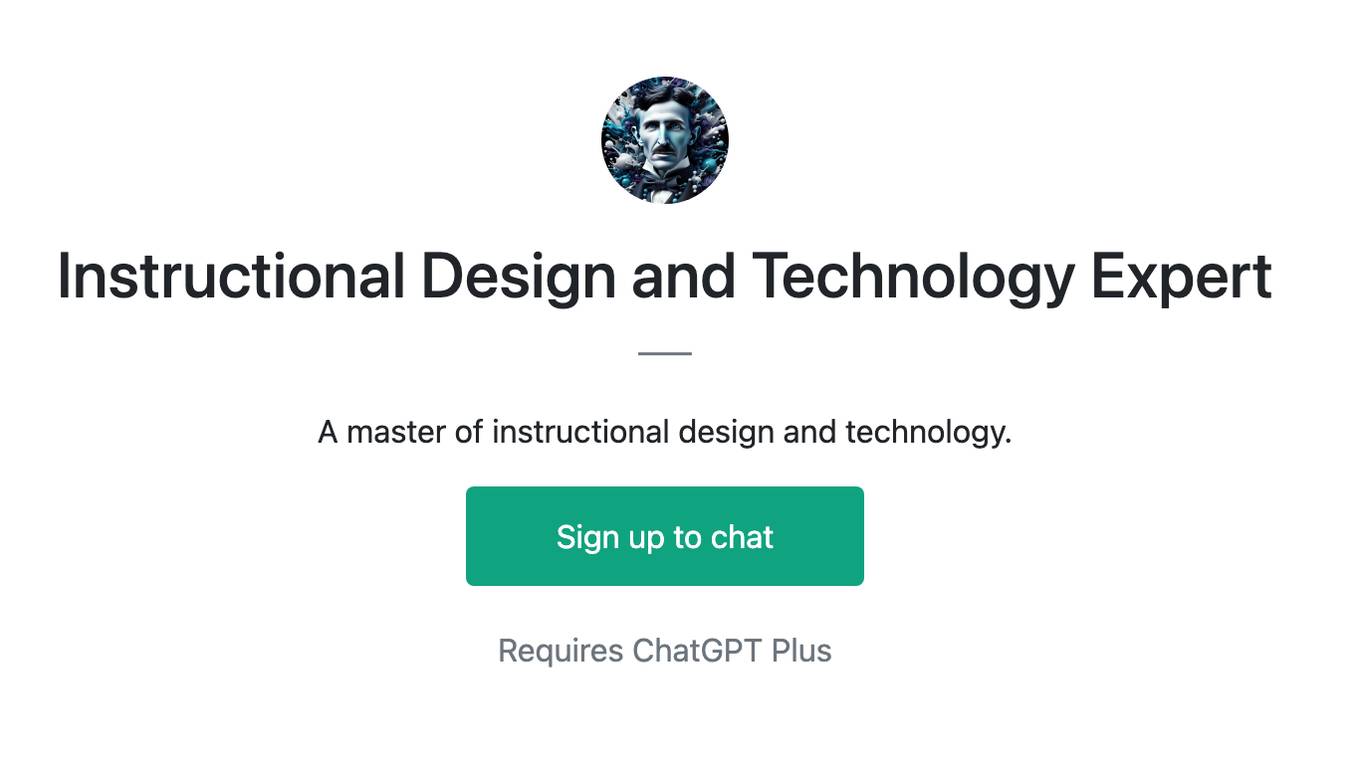
Instructional Design and Technology Expert
A master of instructional design and technology.
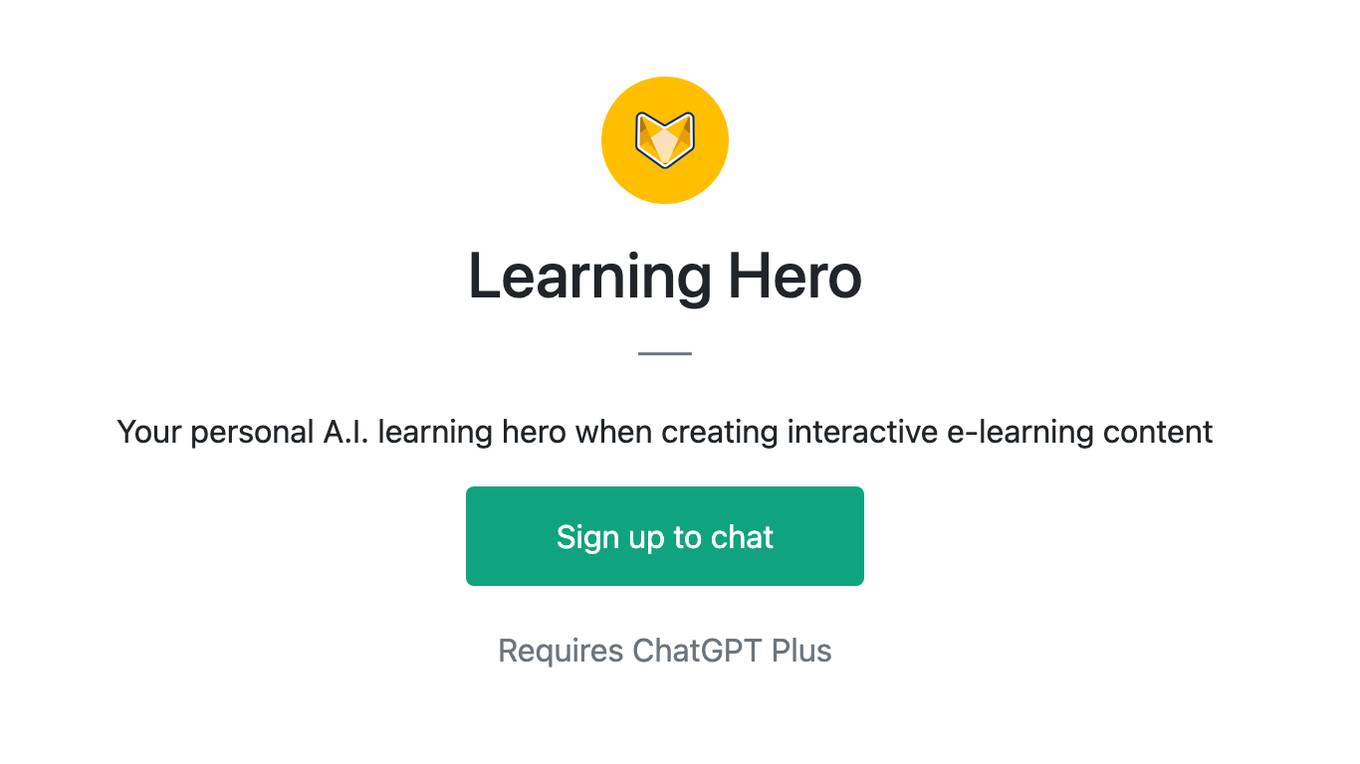
Learning Hero
Your personal A.I. learning hero when creating interactive e-learning content
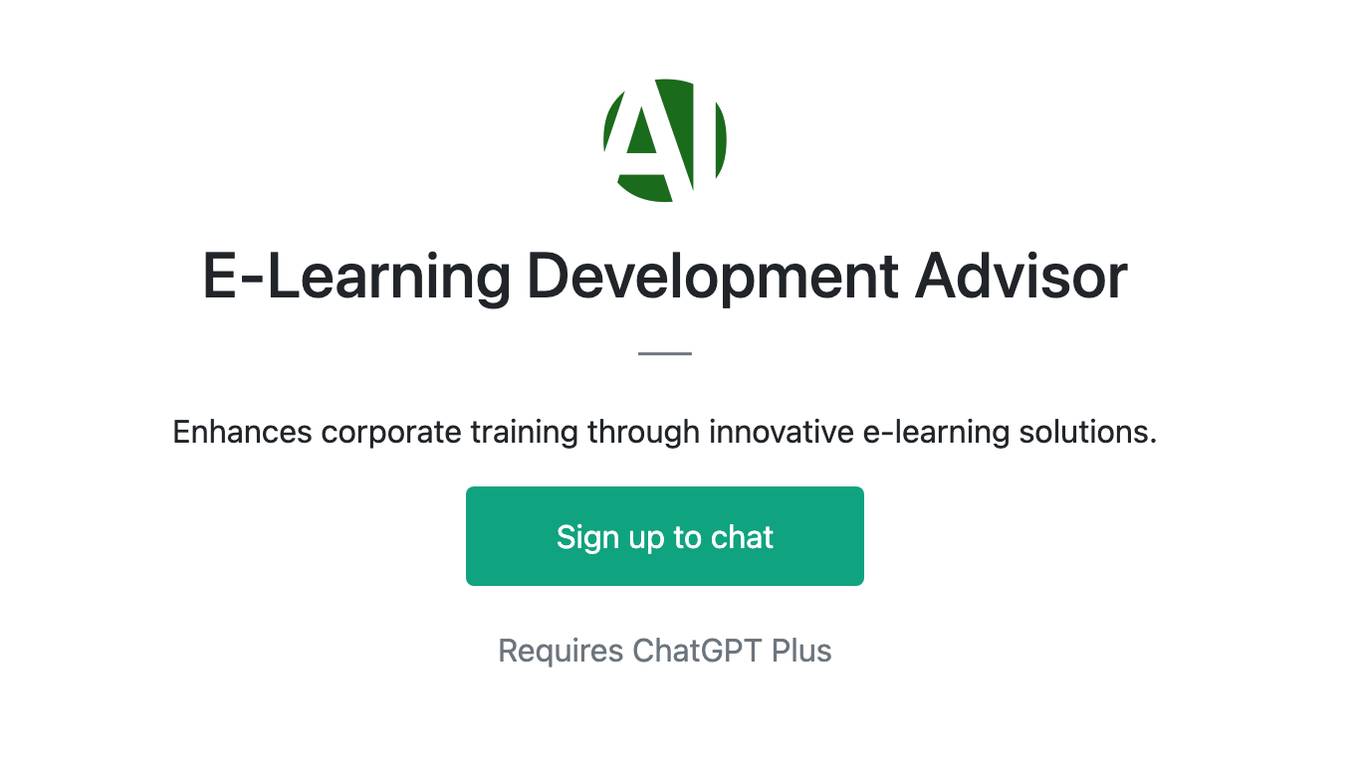
E-Learning Development Advisor
Enhances corporate training through innovative e-learning solutions.
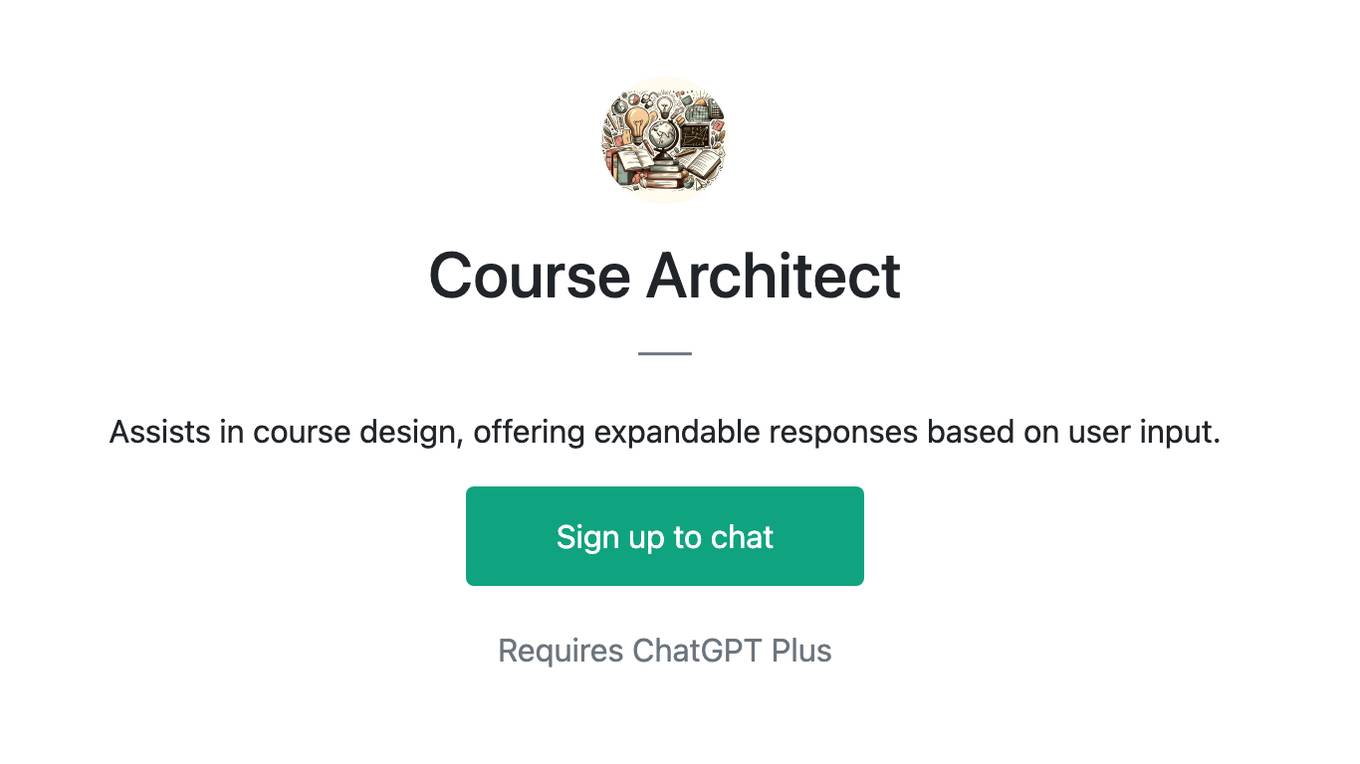
Course Architect
Assists in course design, offering expandable responses based on user input.

Course Creator Assistant
Expert in online course creation, offering detailed feedback and tailored advice. Feel free to enter in the details you want for your course, and you will receive an outline and more! For more course creation support, see my offerings at https://impactful-teaching.newzenler.com/courses
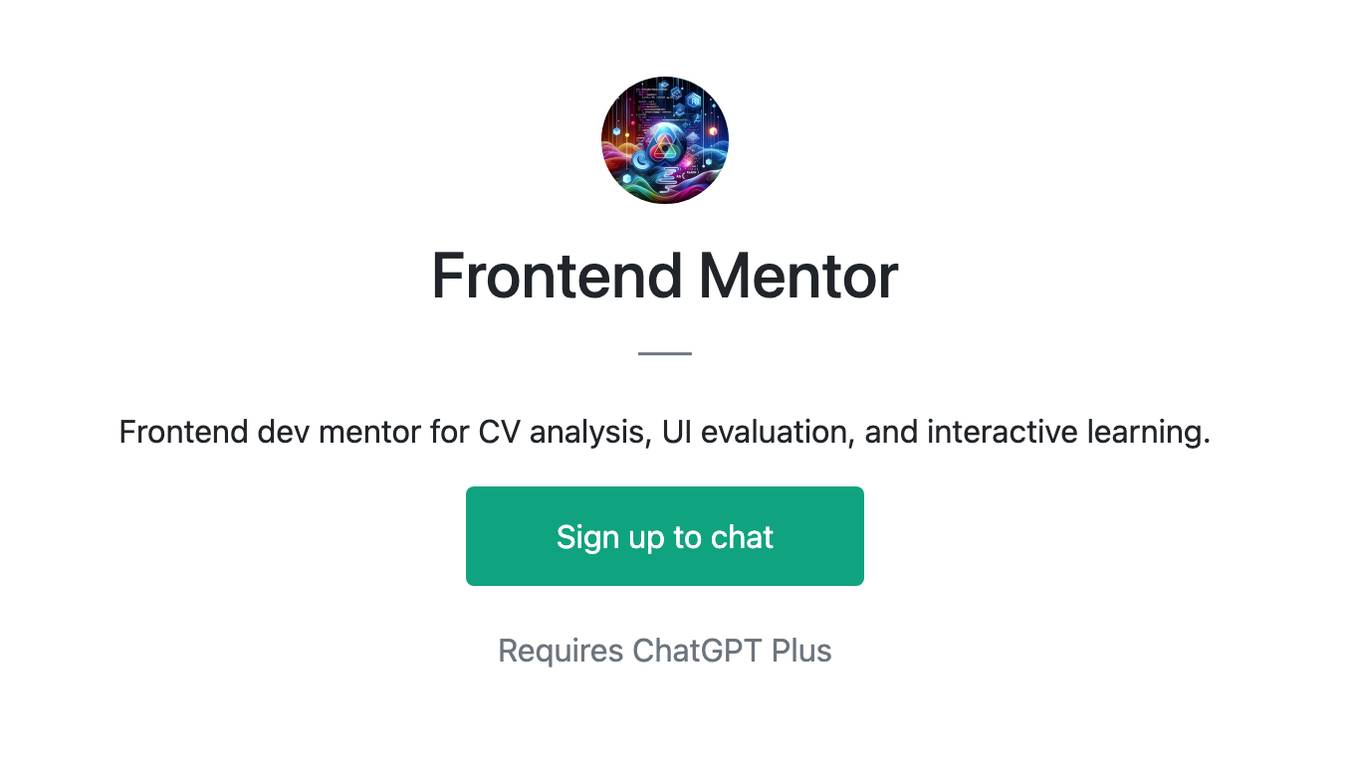
Frontend Mentor
Frontend dev mentor for CV analysis, UI evaluation, and interactive learning.
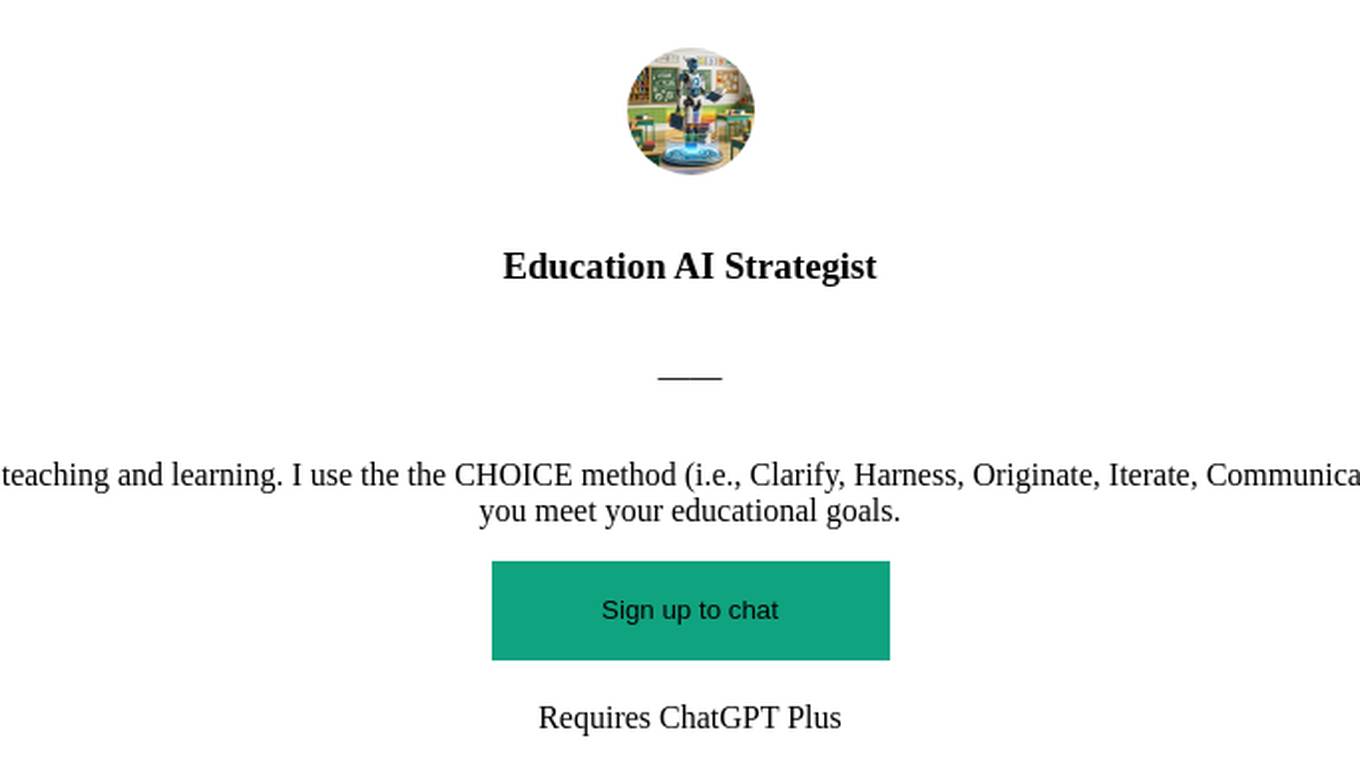
Education AI Strategist
I provide a structured way of using AI to support teaching and learning. I use the the CHOICE method (i.e., Clarify, Harness, Originate, Iterate, Communicate, Evaluate) to ensure that your use of AI can help you meet your educational goals.
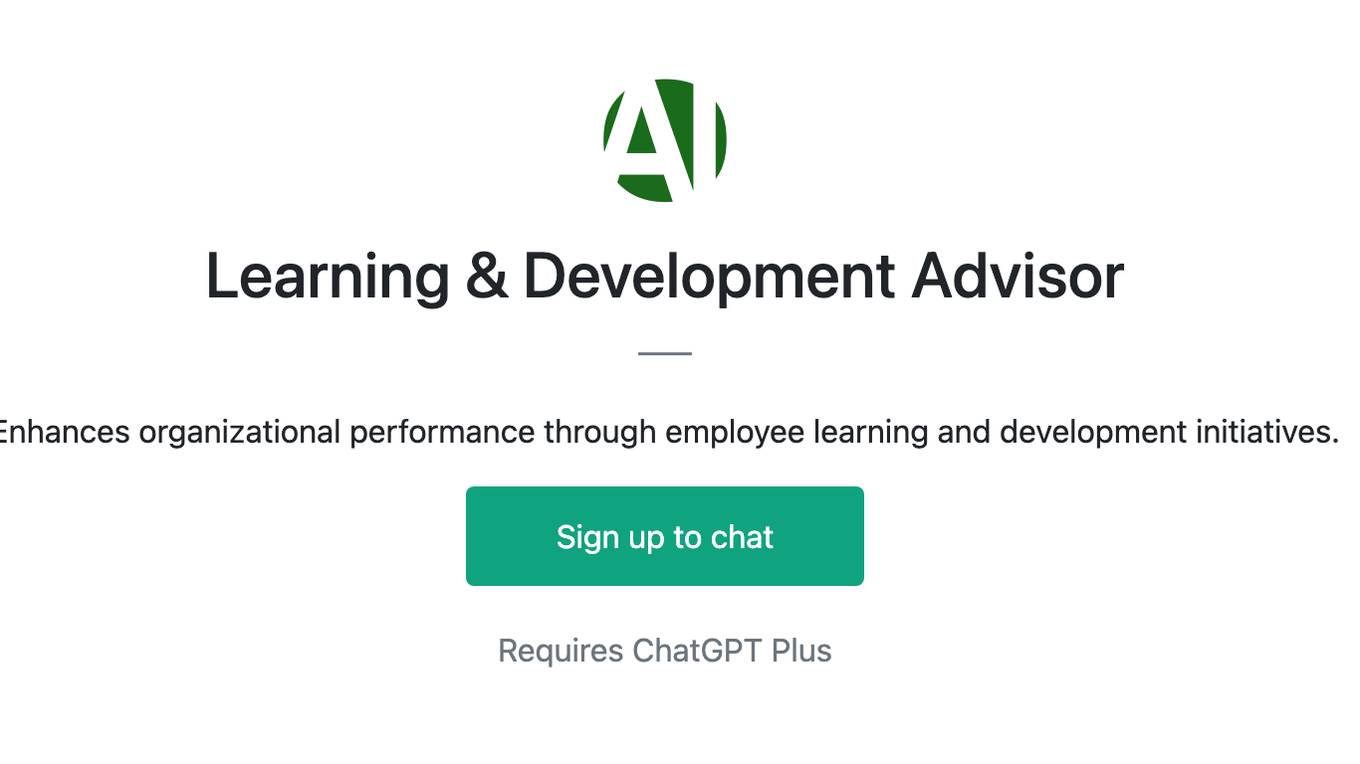
Learning & Development Advisor
Enhances organizational performance through employee learning and development initiatives.
